8 oz Chicken Breast Protein Information
You can’t talk about bodybuilding without mentioning nutrition. Some people would even argue that chicken is a staple when it comes to building muscle. So, how much protein is in 8 oz of chicken breast?
The answer isn’t as straightforward as you might think. It all comes down to the type of chicken breast, how it was prepared, and if you’re measuring it cooked, or uncooked.
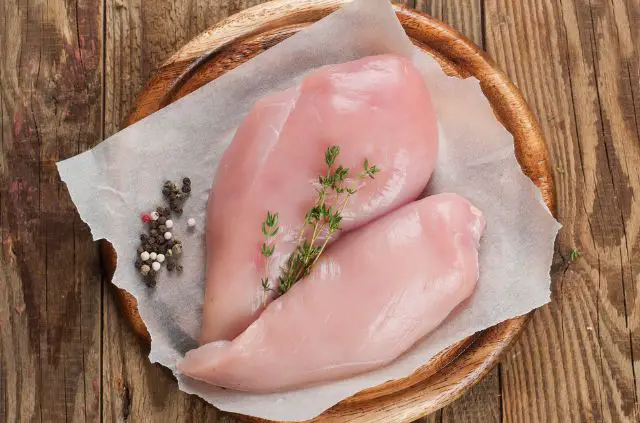
In the sections below, we’ll cover all of the different variations that might be on your plate. This will give you specific and relevant information when it comes to 8 oz of chicken breast protein.
How Much Protein in 8 oz Chicken Breast?
8 oz of chicken breast can have anywhere from 35-67 grams of protein. This is a wide range in numbers – but it all depends on how the food was prepared beforehand.
Here’s how much protein is in 8 oz of chicken breast, based on if it’s cooked or raw:
| 8 oz Chicken Breast | Protein | Fat | Calories |
| Boneless, Skinless (Cooked) | 51.72g | 2.78g | 246 |
| With Bone & Skin (Raw) | 35.46g | 9.26g | 234 |
| With Bone & Skin (Cooked) | 56.74g | 14.82g | 374 |
| Boneless, with Skin (Raw) | 42.55g | 11.12g | 281 |
| Boneless, with Skin (Cooked) | 67.02g | 17.51g | 442 |
So, what factors impact how much protein chicken breast has?
- If the chicken has been cooked
- Whether or not there’s bone
- If the chicken has skin
- Amount of retained water
8 oz Boneless, Skinless (Cooked)
Boneless, skinless chicken breast is the most popular choice for bodybuilders. This is due to the fact that there’s high amounts of protein and little fat – compared to the other types on this list.
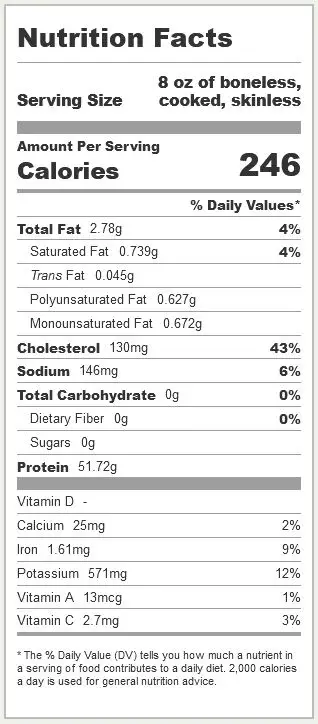
When cooked, 8 oz of boneless, skinless chicken breast has 52g protein, 3g fat, 0g carbs, and 246 calories. These macronutrients are essential for people trying to maintain muscle and burn fat.
8 oz with Bone & Skin (Raw)
You’re always going to get more accurate nutritional measurements of meat when raw. But there are also ways to convert macronutrients, if you prefer to weigh your food before it’s cooked.
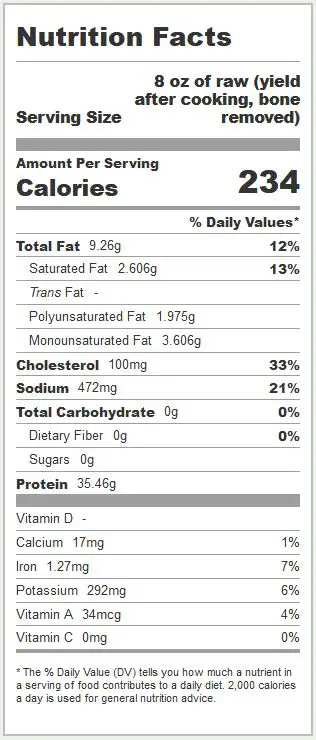
A raw 8 oz chicken breast with bone and skin has 35g protein, 9g fat, 0g carbs, and 234 calories. You can see how the amount of protein drops with bone and skin, compared to the chicken breast listed above.
8 oz With Bone & Skin (Cooked)
You can see how the nutrition facts change once chicken with bone and skin is cooked. Research has found that cooking food alters the weight, which means you can get more calories from the same amount.
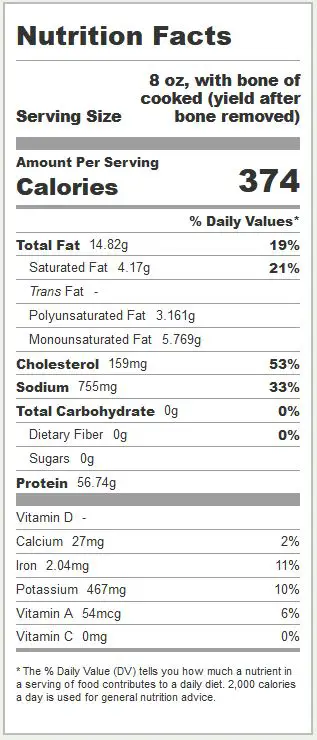
8 oz of cooked chicken breast with bone and skin has 57g protein, 15g fat, 0g carbs, and 374 calories. This type can be a great option if you’re looking to get a high amount of protein with moderate fat.
8 oz Boneless, with Skin (Raw)
Another popular type of chicken breast is boneless with skin. You can see even when it’s uncooked there’s still a moderate amount of fat. But skin can also add more calories and cholesterol.
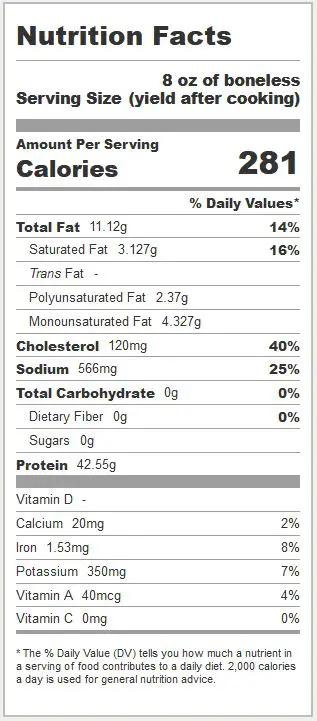
8 oz of raw, boneless chicken breast (with skin) has 43g protein, 11g fat, 0g carbs, and 281 calories. If this is your preferred variety when it comes to food measuring, make sure to convert the weight once cooked.
8 oz Boneless, with Skin (Cooked)
If you’re looking to get the most amount of protein from chicken breast – this is it. However, there will also be more calories and fat as a result. Just keep that in mind when you’re tracking macros.
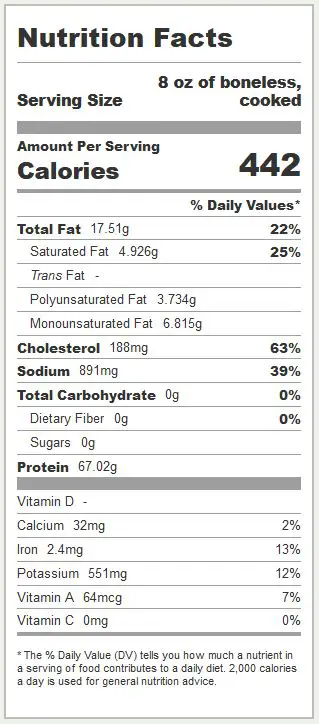
8 oz of cooked, boneless chicken breast (with skin) has 67g protein, 18g fat, 0g carbs, and 442 calories. Bodybuilders who are bulking can eat this type of meat to add more calories to their daily meal plan.
Final Thoughts
By now you should know there are many different factors that can impact how much protein is in 8 oz of chicken breast. So, which variety is best for you? It all depends on your current fitness goals.
If you want high amount of protein and low fat – choose boneless and skinless chicken breast. But if you need to eat more calories, try cooking chicken breast with the skin on.
Just remember to be consistent when it comes to measuring your food. You should either weigh chicken raw, or uncooked. Don’t go back and forth – because the weight can change dramatically.
